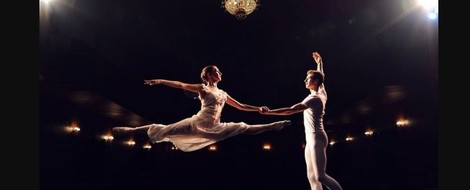Your podcast discovery platform
Curious minds select the most fascinating podcasts from around the world. Discover hand-piqd audio recommendations on your favorite topics.

piqer for: Health and Sanity Boom and bust Climate and Environment
Melissa Hutsell is an award-winning freelance journalist with a deep rooted passion for both community and international journalism. She was born and raised in Northern California, and has lived, studied, worked, and traveled in more 20 different countries. Melissa holds a Master's degree in Global Journalism from City University London, as well as degrees in Journalism and Globalization from Humboldt State University. Though she covers various topics as both a writer and editor, she specializes in business and cannabis journalism.
The Birds Do It, The Bees Do It … But Why Do Any Of Us Dance?
This episode of The Naked Scientists explores why people dance. Host Georgia Mills spoke with Professor of Music Ian Cross to discuss dance's evolution and value.
Dance evolved for the same reason as language, according to Cross: it’s engaging and it’s social. Exactly when humans discovered how to dance is uncertain. But we do know that all sorts of animals can dance. Cross references material from the Kyoto Primate Lab, which shows “chimps can tap in time with each other.” But only if they are friends or family, he noted, not strangers.
Humans, on the other hand, can and do dance with strangers. “When the first fleet landed in Botany Bay in Australia in 1788, […] more or less the first thing that happened was that some of the sailors danced with some of the indigenous peoples.”
But aside from being a social thing, dance can help us remember — or gain information — from others. “Can I engage with this person? Can I communicate with this person?” explained Cross. On a deeper level, “the whole sex thing comes into it,” he adds. “But we’re talking about a level here way below that which is just general sociality.”
Research also shows that people tend to like other people who are “in time” with them. Why? Because it’s a bonding process. It makes sense, when you consider marching bands or armies, notes the host.
To end, the hosts asks Cross “[…] what happens in a brain when a great tune comes on, and your foot starts tapping away and you just want to have a boogie?”
When humans hear music, he explained, our supplementary motor area (which helps with planning and movement) is activated. “You could say that a response to listening to music is to prepare to move,” he ends.
